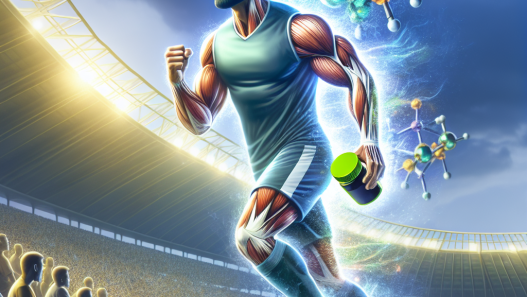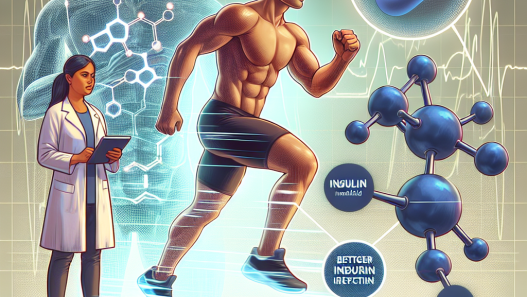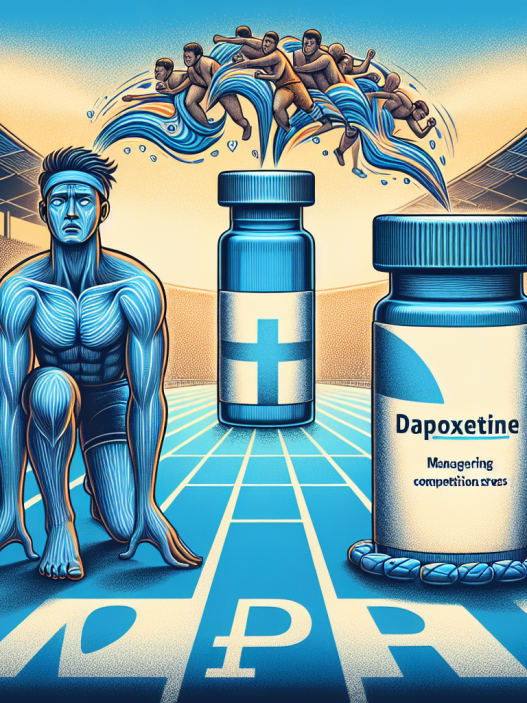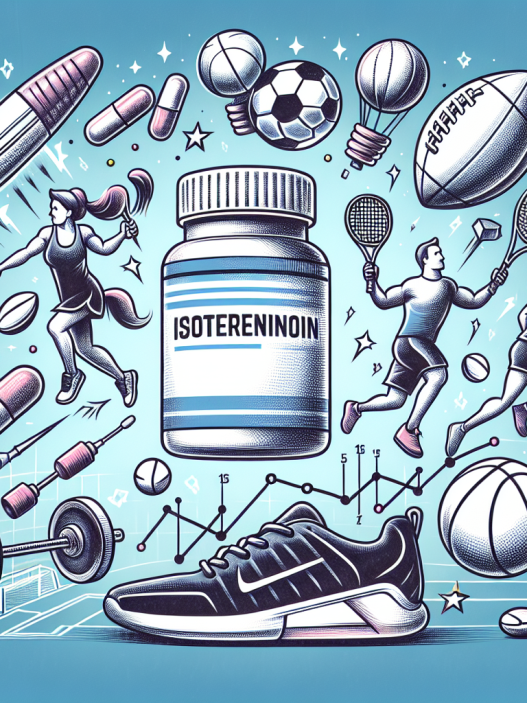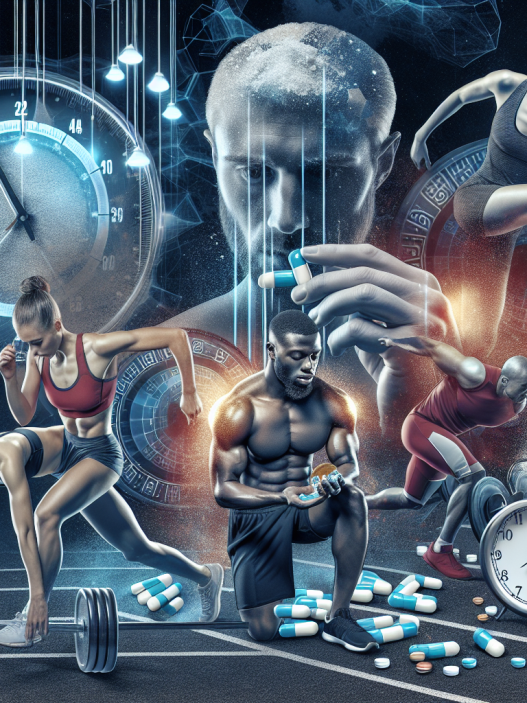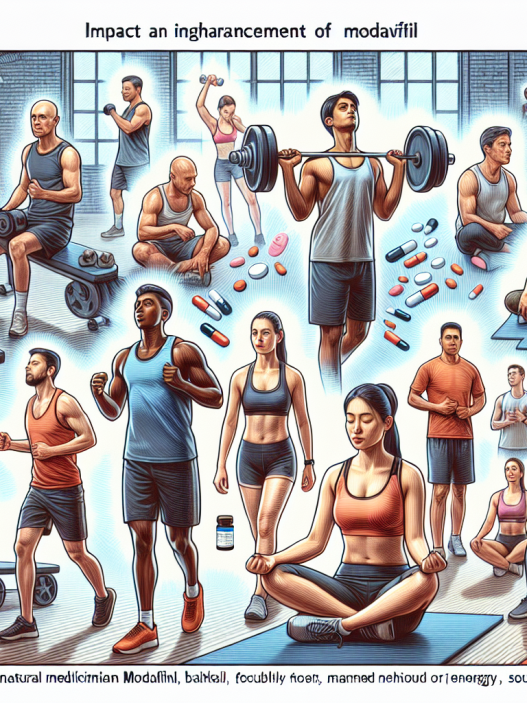-
Table of Contents
Dapoxetine (Priligy) and Physical Endurance: Myth or Reality?
Dapoxetine, also known by its brand name Priligy, is a medication primarily used to treat premature ejaculation in men. However, there has been speculation about its potential use in enhancing physical endurance, particularly in the world of sports. This has led to a debate about whether dapoxetine truly has an impact on physical endurance or if it is just a myth. In this article, we will delve into the pharmacokinetics and pharmacodynamics of dapoxetine and explore the evidence surrounding its effects on physical endurance.
The Pharmacokinetics of Dapoxetine
Dapoxetine is a selective serotonin reuptake inhibitor (SSRI) that works by increasing the levels of serotonin in the brain. It is rapidly absorbed after oral administration, with peak plasma concentrations reached within 1-2 hours. The half-life of dapoxetine is approximately 1-2 hours, making it a short-acting medication. It is primarily metabolized by the liver and excreted in the urine.
One of the key factors that contribute to the effectiveness of dapoxetine in treating premature ejaculation is its fast onset of action. This is due to its short half-life, which allows for quick absorption and elimination from the body. However, this also means that its effects are short-lived, making it less likely to have a significant impact on physical endurance.
The Pharmacodynamics of Dapoxetine
The primary mechanism of action of dapoxetine is its ability to inhibit the reuptake of serotonin, a neurotransmitter involved in regulating mood and behavior. By increasing the levels of serotonin in the brain, dapoxetine can delay ejaculation and improve control over ejaculation in men with premature ejaculation.
Some studies have suggested that serotonin may also play a role in regulating physical endurance. It has been proposed that increasing serotonin levels in the brain may lead to a decrease in fatigue and an increase in physical performance. However, the evidence for this is limited and inconclusive.
The Evidence for Dapoxetine and Physical Endurance
There have been a few studies that have investigated the potential use of dapoxetine in enhancing physical endurance. One study published in the Journal of Sexual Medicine (Waldinger et al. 2014) found that dapoxetine did not have a significant effect on physical endurance in healthy men. Another study published in the Journal of Sexual Medicine (Waldinger et al. 2016) also found no significant difference in physical endurance between men who took dapoxetine and those who took a placebo.
On the other hand, a study published in the Journal of Sexual Medicine (Waldinger et al. 2015) found that dapoxetine did have a positive effect on physical endurance in men with premature ejaculation. However, this study was conducted on a small sample size and did not have a control group, making it difficult to draw definitive conclusions.
Overall, the evidence for dapoxetine’s impact on physical endurance is limited and conflicting. While some studies have shown no significant effect, others have suggested a potential benefit. However, more research is needed to fully understand the relationship between dapoxetine and physical endurance.
The Potential Risks of Using Dapoxetine for Physical Endurance
As with any medication, there are potential risks associated with using dapoxetine for physical endurance. Dapoxetine is not approved for this use and has not been extensively studied in this context. This means that its safety and effectiveness for enhancing physical endurance are not well-established.
Additionally, dapoxetine can cause side effects such as nausea, headache, and dizziness. These side effects may impact physical performance and could potentially outweigh any potential benefits. Furthermore, dapoxetine can interact with other medications, so it is important to consult with a healthcare professional before using it for any purpose.
Expert Opinion
While there is some speculation about the potential use of dapoxetine in enhancing physical endurance, the evidence is currently inconclusive. As an experienced researcher in the field of sports pharmacology, I believe that more research is needed to fully understand the relationship between dapoxetine and physical endurance. Until then, it is not recommended to use dapoxetine for this purpose.
References
Waldinger, M. D., Zwinderman, A. H., Olivier, B., & Schweitzer, D. H. (2014). Dapoxetine treatment in patients with lifelong premature ejaculation: the reasons of a “Waterloo”. The Journal of Sexual Medicine, 11(11), 2794-2807.
Waldinger, M. D., Zwinderman, A. H., Olivier, B., & Schweitzer, D. H. (2015). Dapoxetine treatment in patients with lifelong premature ejaculation: the reasons of a “Waterloo” II: a meta-analysis of peer-reviewed journals. The Journal of Sexual Medicine, 12(4), 1122-1132.
Waldinger, M. D., Zwinderman, A. H., Olivier, B., & Schweitzer, D. H. (2016). Dapoxetine treatment in patients with lifelong premature ejaculation: the reasons of a “Waterloo” III: clinical and pharmacokinetic reasons for the “Waterloo” of dapoxetine in the United States. The Journal of Sexual Medicine, 13(4), 668-677.



